The on-going school bus driver shortage is a serious problem indeed. It is widespread and it is persistent, and it affects the lives of the children we transport. And there is no easy answer in sight. It threatens our ability to carry out our prime mission: to safely transport our nation’s children to and from school. It is existential, in a word.
But equally existential, in my humble opinion, is the growing issue of a growing lack of supervisors and managers for school transportation operations. While not a prevalent trend, it is something we are starting to hear more about. And that is concerning for sure.
Several years ago, during a strategic planning session, one of our New York association officers noted wryly that “No one is graduating from high school saying, ‘I want to be a transportation supervisor.’” For a moment, everyone in the room chuckled but then it got quiet. Because we realized then how true the statement was. Prescient words indeed.
Indeed, the lack of career interest in school transportation management can be traced in part to many people not even knowing we exist in the school environment. They see our buses daily, but they don’t know what it takes to get them on the road. When the public thinks about school personnel, they think superintendents and principals, teachers, counsellors, and coaches. They might think school bus drivers because they see them on their street corner each day. But how many ever think Transportation Supervisor?
I would submit that that’s largely on us. We have not been good at promoting the work we do for our schools and our children. I was recently in a state where a meeting was being held with high-level state officials considering measures to improve school bus safety following a tragic and fatal accident. It was striking to me how most of the people in the room had only a rudimentary understanding of school transportation and school bus safety. And it struck me that part of our work as professionals is to fix that.
But having said that, the reality is that the job itself is difficult and even difficult to comprehend. How do you explain the levels of activity and the multi-faceted roles that supervisors must play on a daily basis. Let’s consider some of those factors, with a promise to discuss the GOOD sides of the job in a future piece:
Hours of Service: Most supervisors are in before anyone else in the school district and most are still there after other school officials have left for the day. I have heard many answering systems announce that office hours are from 5:30 AM to 5:30 PM…no one else in the district keeps those hours.
The vagaries of the job: there are always last-minute athletic events to cover, school emergencies, homeless students in need of transportation, traffic accidents, traffic issues out on the roads, students fighting on the bus, drivers calling in sick, and did I mention weather(?).
Parents: over the years, parents have become much more, shall we say, assertive in their advocacy for or defense of their children. This is the case in disciplinary situations or even in the convenience and comforts of their bus ride. Often parents, who have a right to know more about their child’s transportation service, take on an edge and a tone that sets off alarms. Increasingly, this has made school transportation a lightning rod and a point of high stress.
Administrators Relationships: School transportation rarely gets the level of attention it should from high-ranking school officials. And that is not to be critical of them as their responsibilities are wide-ranging and stressful. But transportation is itself stressful and managers/directors need political and financial and even emotional support in their roles. Transportation folks are known as self-sufficient and as problem-solvers. Those two traits tend to earn them less attention. Moreover, superintendents and principals are very focused on instructional support and academic development for the children. Non-instructional activities, such as school transportation, do not get their attention…unless something adverse happens.
Budget demands: school transportation is a non-instructional cost item in a school district, which means it is not at the high priority that instructional costs are. While we understand that, it is also difficult to operate annually with the assumption that your budget will be either held flat or reduced to allow for support in other areas. With increases in fuel costs or, in the alternative, costly new clean/green technologies, and increased costs for driver wages, and the potential for seat belts and other safety equipment to be added to our buses, there is a case to be made that we need more not less.
Staffing Shortages: it is no secret that we have a driver shortage and that many operators are finding it difficult to retain technicians and other staff positions. That makes the work of the supervisor/director even more challenging and demanding.
What to do? As professionals, we are driven to find solutions in our workplaces. As a profession, we will need to explore and find solutions together that help us all and not just our own local or personal needs.
Not unlike our efforts to get under the driver shortage, we will need to dissect ‘the job’ to understand how it works and what it takes to do it. We will need to understand the transportation director role in the context of the educational community in 2023 and beyond. The expression ‘this isn’t your father’s transportation supervisor job’ may apply here. The roles that supervisors and directors play involve more than keeping the fleet rolling and the drivers in the seats. There is more to the job in terms of social and educational issues, human resources management, security and violence prevention. student and family engagements, in-house administrative roles, environmental matters, special education issues, facilities planning and more.
As I once shared in New York with our association membership, we are not simply ‘transportation professionals’; we are indeed ‘education professionals who are engaged in the transportation aspects of education and school operations.’ With that perspective, our discussions and exploration as we generate the leaders of the next generation become clearer.
In the meantime, take pride in what you do and particularly who you do it all for (Hint: the children). Don’t hesitate to boast a little about the successes you achieve each day. Take a moment to observe those around you who have the potential to lead and then nurture them as appropriate.
The future is in our hands.
(Count on there being more of this discussion in future issues and potentially webinars with people who think about these matters.)
Peter Mannella (pfman5@gmail.com) is chair of the NAPT Public Policy Committee.


